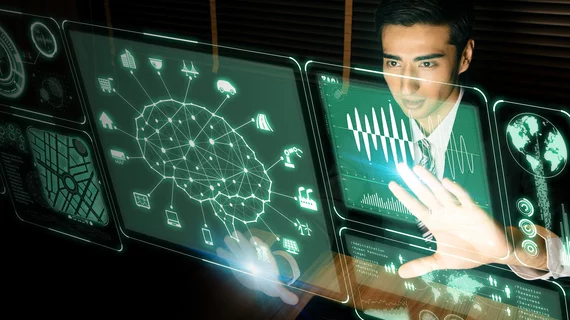RadNet unveils DeepHealth, its ‘pioneering’ new health informatics portfolio
Imaging industry giant RadNet at RSNA on Monday announced the unveiling of DeepHealth, its new AI-powered health informatics portfolio.
The publicly traded, Los Angeles-based diagnostic imaging services network said the offering aims to drive efficiency while reshaping radiology’s role in healthcare. Powered by clinical artificial intelligence, the cloud-native operating system hopes to help rads improve disease detection while bolstering efficiency.
“Our new portfolio will integrate and scale the role of radiology across the healthcare delivery system,” Sham Sokka, chief operating and technology officer for RadNet’s digital health businesses, said in a Nov. 27 announcement. “The DeepHealth OS and other products are designed with a modular and open architecture. AI and workflow applications can be adopted separately, and we intend to interoperate with best-in-class ecosystem solutions.”
The product is centered around DeepHealth OS, a workflow engine that integrates enterprise-wide data streams, offering personalized workflow applications for multiple roles. RadNet plans to eventually provide professionals such as practice manages, schedulers, patient liaisons and revenue cycle teams with AI-enabled apps to manage care delivery and improve efficiencies.
The company, which operates 366 imaging centers, said it is already using elements of the portfolio in daily practice.

